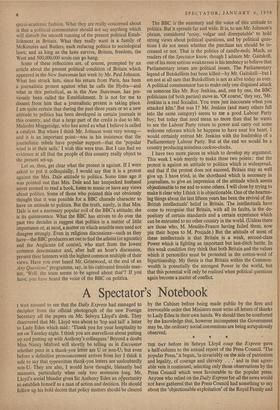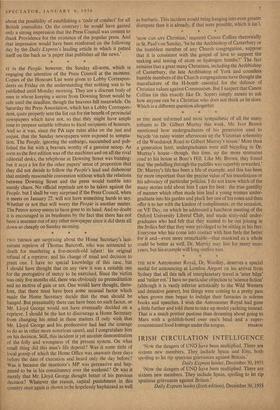THE DAY before its Selwyn Lloyd coup the Express gave
a half-column to the annual report of the Press Council. `The popular Press,' it began. 'is invariably on the side of patriotism and legality, of courage and chivalry . . .' and in that agree- able vein it continued, selecting only those observations by the Press Council which were favourable to the popular press. Anyone who relied on the Daily Express for all the news would not have gathered that the Press Council had something to say about the 'objectionable exploitation' of the Royal Family and about the possibility of establishing a 'code of conduct' for all British journalists. On the contrary : he would have gained only a strong impression that the Press Council was content to thank Providence for the existence of the popular press. And that impression would have been reinforced on the following day by the Daily Express's leading article in which it patted itself on the back as 'a paper that publishes all the news.'
* * *



































 Previous page
Previous page